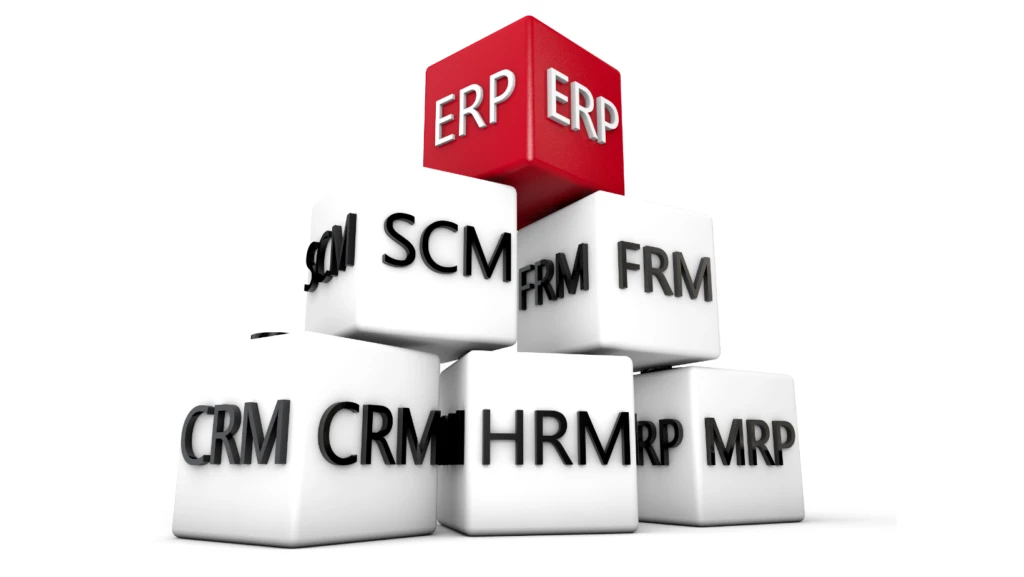Acquiring the best Enterprise Resource Planning (ERP) system for a company is a critical choice that will have a significant impact on overall productivity and operational effectiveness. The process of comparing various ERP options requires a thorough analysis of important factors that are extremely important in establishing how suitable the system is for a company. These essential components are crucial in determining how the assessment procedure is shaped, assisting decision-makers in making a wise choice that fits the company’s objectives, growth trajectory, and operational dynamics.

- Upfront Costs:
Assessing the upfront costs of implementing an RP system entails a meticulous breakdown of various financial components pivotal to its adoption. It encompasses not just the licensing fees but also delves into the intricacies of installation expenses, hardware costs, and any ancillary setup charges.
A detailed cost analysis becomes essential, requiring assessors to carefully account for the direct and sometimes disregarded indirect costs that may arise during the system’s life cycle. Such an in-depth examination allows for a more holistic understanding of the financial implications and aids in making informed decisions, considering the short-term investment vis-à-vis the long-term benefits and potential savings, thereby ensuring a more effective allocation of resources and a clearer comprehension of the financial viability of the RP system implementation.
2. Utilization of IT Resources:
Optimizing IT resources is fundamental for the successful integration and functionality of an ERP system within an organization’s framework. The smooth alignment of the chosen ERP system with the current infrastructure is crucial to ensure compatibility and mitigate potential disruptions that might arise during implementation. Evaluators face the task of meticulously assessing the system’s resource demands, delving into intricate details such as hardware specifications to guarantee that the infrastructure adequately supports the ERP system’s requirements.
Simultaneously, understanding software dependencies becomes crucial to ascertaining smooth interaction and functionality between the ERP system and other existing software applications. Additionally, evaluating the necessary skill sets for ongoing maintenance and support is equally imperative, ensuring that the internal team possesses or can acquire the required expertise to manage and troubleshoot the ERP system effectively. This comprehensive evaluation helps mitigate risks of resource mismatches, reduces potential downtime, and ensures that the ERP system integrates within the organization’s IT ecosystem for optimal performance and efficiency.
3. Easy Accessibility and Availability
Ensuring effortless access and consistent availability of the ERP system is fundamental for maintaining smooth operations across diverse departments and geographical locations.
The evaluation involves analyzing several key factors, such as the user interface’s ease of use to accommodate users of varying technical expertise, the system’s capacity for remote access, and the frequency or likelihood of system downtime. Business consideration involves enabling user-friendly access without compromising stringent security protocols.
This assessment guarantees that authorized users can interact with the ERP system without hindrance, fostering uninterrupted workflow while upholding robust security measures to safeguard sensitive data and maintain operational integrity.
4. Security
The security aspect is of paramount importance when assessing an enterprise-level system such as an ERP system. The system must adhere strictly to industry-established standards concerning data encryption, user authentication protocols, access control mechanisms, and regulatory compliance requirements.
Robust security measures need to be meticulously implemented to fortify the system’s defenses, ensuring the protection of highly sensitive business information from potential threats and unauthorized access.
The system should be fortified with multi-layered security protocols to avert any possible data breaches, upholding the integrity and confidentiality of critical business data. Compliance with these stringent security measures is crucial in safeguarding the ERP system, preventing potential vulnerabilities, and upholding the trust and credibility of the organization’s data handling practices.
5. Scalability
The capacity for adaptability and scalability within an ERP system remains pivotal in accommodating the evolving demands of business growth and changing operational requirements. Evaluators undertake a thorough examination, scrutinizing the system’s capability to manage and scale alongside heightened transaction volumes, ensuring its adeptness in supporting an expanding user base and seamlessly integrating with new functionalities or modules.
This assessment entails a comprehensive analysis of the system’s flexibility and responsiveness, evaluating its potential to accommodate increased workloads and adapt to the dynamic landscape of business operations. Understanding the system’s scalability is crucial for ensuring that the ERP system possesses the agility and capacity to grow in tandem with the organization, providing the necessary foundation to accommodate future expansion and evolving business needs efficiently
6. Upgrades to Latest Versions
Regular updates and upgrades are essential to keep the ERP system abreast of technological advancements and security patches. Evaluators must consider the vendor’s update frequency, ease of upgrading, backward compatibility, and associated costs to ensure the system remains current and efficient.
Evaluating an ERP system based on these fundamental criteria offers a holistic insight into its compatibility and applicability within a business framework. Prioritizing considerations such as initial costs, efficient resource employment, accessibility, stringent security measures, adaptability to growth, and regular upgrade potential empowers businesses to make well-informed decisions aligning with their present operational requirements and future expansion strategies.
This all-inclusive assessment framework makes it easier to comprehend how the ERP system fits the unique requirements of the company, guaranteeing that the system of choice will not only fulfill present requirements but also have the inherent adaptability to change with the organization as it grows.
Businesses can confidently choose an ERP solution that not only meets their immediate operational needs but also provides a strong basis for future technological advancements and scalability, resulting in sustained efficiency and competitive advantage, by carefully examining these crucial factors.





